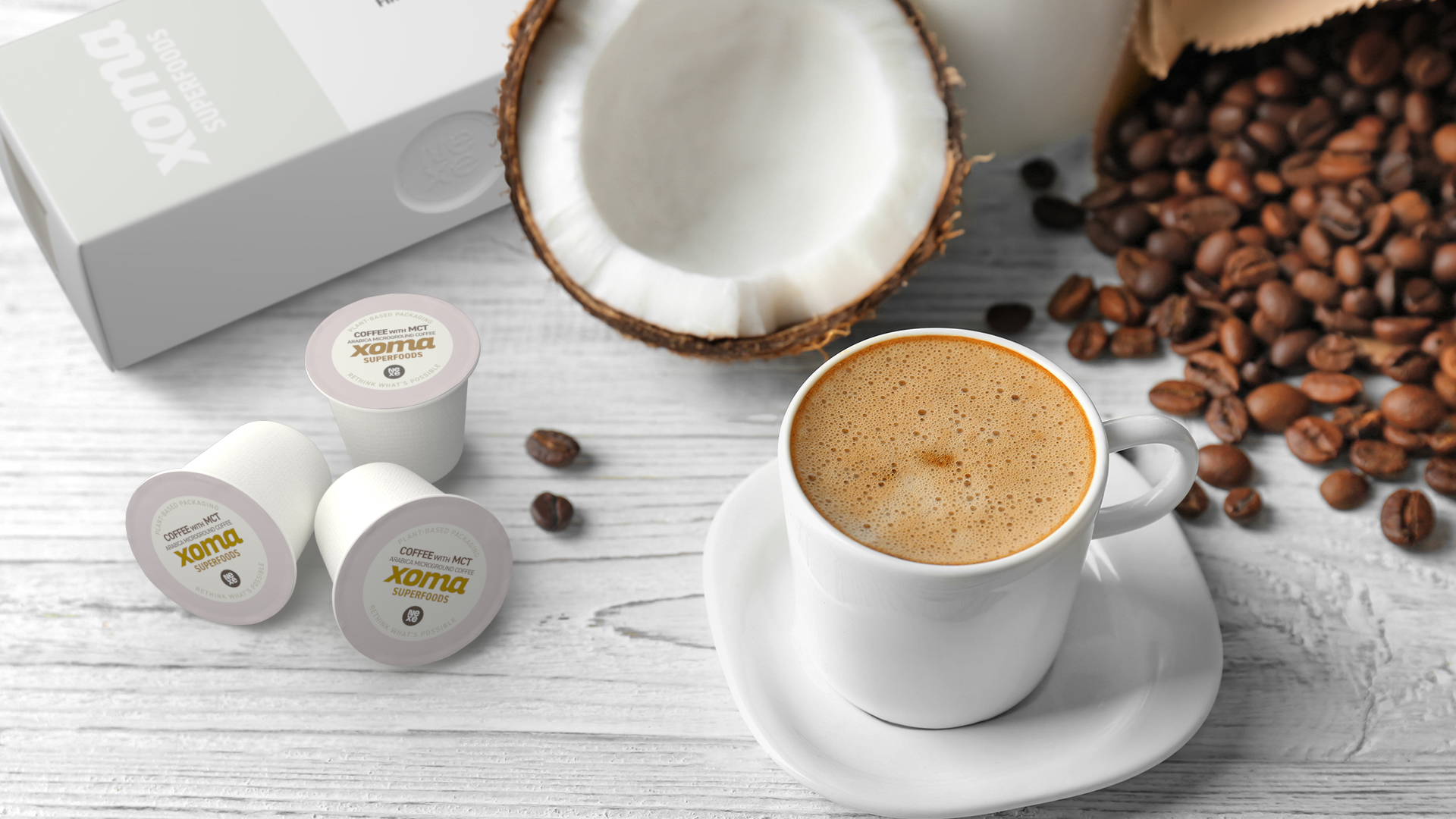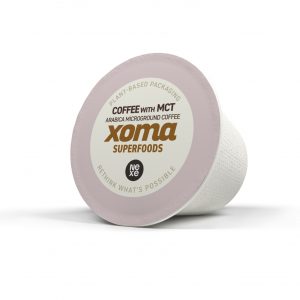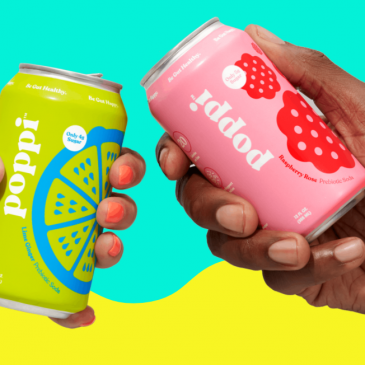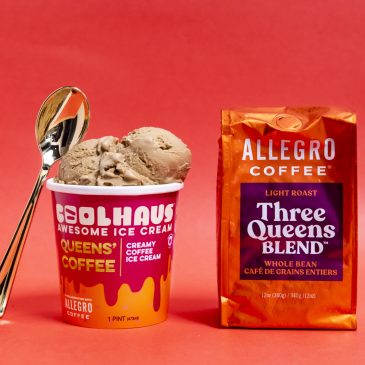Purpose At Work
Purpose At Work: How Poppi Leverages Purpose To Bring Health To Soda

 XOMA Superfoods is a new brand and subsidiary of NEXE Innovations, based in British Columbia, CN. Its president and director, Ash Guglani, who cofounded NEXE in 2015, after more than a decade in the capital markets, spoke with me about the company’s Lead With We purpose thinking, financing, operations, and storytelling.
XOMA Superfoods is a new brand and subsidiary of NEXE Innovations, based in British Columbia, CN. Its president and director, Ash Guglani, who cofounded NEXE in 2015, after more than a decade in the capital markets, spoke with me about the company’s Lead With We purpose thinking, financing, operations, and storytelling.
“Xoma” comes from the Greek word for soil or earth, Guglani explains, and represents a new, more ethical way to get good coffee and other superfoods, scientifically supported, which “are good for both you and the planet.”
The brand’s story starts with a big problem: The precipitous rise of the single-use coffee pod, near ubiquitous now in homes, offices, institutions, and restaurants. “I think what people forget is the whole purpose of a single-serve coffee pod at the beginning was convenience, right?” Guglani asks. “And obviously they were too convenient because there’s 60 billion of these consumed every year now.”
Brewing a regenerative solution to this seemingly insurmountable challenge
And then, of course, they are discarded. By the best estimates of the industry, 56 billion of those pods wind up in landfills, where they will take hundreds or thousands of years to break down. What’s worse, other research warns that 80% of pods might ultimately find their way to the ocean, Good Housekeeping reports. The microplastic byproducts, even when plastics are broken down, pose their own set of potentially catastrophic challenges.
So, what to do? “With the waste issue, the ‘best’ solution or the ‘easiest’ solution always is recyclability,” Guglani points out. But that’s a lot easier considered than done. “It’s a lot of work,” he says. “and it requires a lot of human interaction — and that’s why recycling does not work in general.”
Exactly. When you look at a typical recyclable K-cup offered nowadays by a number of the big and smaller players in the coffee pod industry, Guglani says, “you’ve got to rip the lid off — that goes in the garbage — take out the coffee grounds — those go in the compost — take out the filter, take out the bottom shell — and maybe, maybe that shell will be recycled [by the consumer]. But it still has to go down a processing line at a recycling plant.” Sadly, that last link in the chain is often the weakest.
National Geographic reports that “Mass production of plastics, which began just six decades ago, has accelerated so rapidly that it has created 8.3 billion metric tons — most of it in disposable products that end up as trash … Even the scientists who set out to conduct the world’s first tally of how much plastic has been produced, discarded, burned, or put in landfills, were horrified by the sheer size of the numbers.”
And, further complicating this conundrum is that 91% of all plastics consumed are not recycled. Well-meaning companies creating recyclable aluminum pods, too, face their own similar obstacles to adoption and effective, efficient, sustainable processing. In short, recycling these millions of pods is not working — and we’re all paying a steep price.
Now enter NEXE. According to “our ethos … from day one,” Guglani tells We First, “there was never a problem or hurdle that NEXE was not able to solve, or that we backed away from.” They consider themselves “an innovation company first.”
“We’ve approached everything with a solutions-oriented mindset, Guglani says. That typically requires lots of “We” and “With” leadership. The first “With,” of course, is With consumers’ interests and cares.
 Pouring on the innovation through effective collaboration
Pouring on the innovation through effective collaboration
NEXE’s consumers “demand” products that are more regenerative, so that’s “what we demand” of the entire process,” Guglani says. That means its product development, packaging, and life cycle, including the all-important end-of-life. It credits its consumers with saving the planet — right on its packaging.
And it listens and responds to them continually, collaborating on its innovations. It also adapts to consumer concerns and societal trends. For example, as the keto craze became more entrenched, NEXE decided to launch under its new XOMA brand a keto-friendly, micro-ground coffee made with “quality fats” from cocoa butter and MCT oil (medium-chain triglycerides) — a combination that some experts believe could provide significant health benefits.
XOMA features two other “superfood” products in its line, so far: XOMA Coffee Fortified with MCT, and its Mindful Mushroom Coffee, which contains chaga, cordyceps, and lion’s mane mushrooms, which are a rich, low-calorie source of fiber, protein, and antioxidants (mushroom have been part of the human diet since at least the Copper Age, 5,000 years ago, we know from evidence found on — and in — mummies).
But where the company really leads with innovation is in its packaging. Its whole family of products are packaged with regeneration — not waste and depletion — top of mind. The company leveraged its human capital (including University of British Columbia experts) and technology (including 3D printing) to research, design, prototype, and patent the world’s first compostable single-serve coffee pod.
Why is this meaningful? University of Tennessee–Knoxville testing showed complete degradation of fully compostable pods within 46 days. Independent research conducted on the NEXE pods used by its products, including the XOMA brand, showed they can biodegrade in as little as 35 days, “proving,” according to the UT researchers, “composting to be a feasible waste stream option and a sustainable marketing edge while treading the path toward a circular economy.”
You’d think, probably, that innovating a regenerative solution to this problem would be a more expensive proposition than, say, making standard single-use plastic pods, right?
Maybe, until the manufacturing infrastructure evolves to scale production — which NEXE is working on. But that same UT study, published in Nature, showed a cost savings potential of 20% (realized mostly in terms of waste disposal). Plus, the researchers remind us, you get the value-add of another product at the end of the coffee pod’s life cycle: “nutrient-rich compost being recirculated to … gardens and farms.” That’s the future of agriculture and economics.
Not to say that future is a fait accompli. Nor can any one of us do it entirely on our own. To Lead such innovation and disruption — and to help solve so giant a problem — requires co-owning both the challenge and the solution, both the burden and the opportunity. That starts with convening the right-minded talent and opening up the floor.
“We work with our team of experts to think through problems and find ways to solve them,” says Guglani.” “We often have to rethink traditional methods of R&D to help find the best solutions out there. Ultimately that’s the method of thinking that led to innovative solutions like the NEXE pod that’s being used for XOMA Superfoods.”
At NEXE, “We have a master formulator who has more than twenty years of experience making health and wellness products for companies worldwide. He, along with our own in-house team, work with leading suppliers in North America, making sure our products meet our health and nutrition standards,” Guglani says.
Naturally, such innovation that makes money and heals the planet requires a steady drip-drip of funding from profits, punctuated by caffeinated jolts of investment. Enter Guglani. His prior finance and collaboration experience with public, private, and government entities, helped NEXE raise more than $35M from equity and government funding to support the April 2021 launch of XOMA, which was also preceded by five plus years of R&D.
Leaving the right kind of ring on the world
That’s why XOMA Superfoods and its parent NEXE lead their storytelling with the novelty, necessity, and impact of their tech (which could someday find itself licensed or open-sourced). And today, “We lead with compostable,” Guglani says. “It’s always about the compostable technology first and the mission of actually eliminating single-use plastics.” But, of course, “it’s even better when you have a good product to sell.”
Merging coffee, superfoods, and compostable packaging was “a good place to start,” says Guglani. But the company “want[s] to be disruptive anywhere where we can be — especially in anything that used single-use plastics every day — we want to be there.” Meantime, “It’s a big industry,” he says. “There’s a lot of room for more disruption.” NEXE has recognized and is now capitalizing on the market opportunity of a more regenerative, circular product life cycle and economy. And positioned itself to meet the increasing demand for more environmentally friendly and circular products, beyond just the single-serve coffee sector.
Guglani’s advice for entrepreneurs and industry leaders of all stripes to live up to their responsibilities even as they reap the rewards works just as well for leading a purpose-based company as for getting to work today on planetwide problems: “Have a long term vision and stick to it — and don’t get bogged down by the short-term challenges you have.”
 Ways to Lead With We: what you can do today to refill the collective cup
Ways to Lead With We: what you can do today to refill the collective cup

Purpose At Work: How Poppi Leverages Purpose To Bring Health To Soda

Purpose At Work: 12 Lessons From Coolhaus On Purpose, Products And Partnerships
10 Resolutions for Making Purpose Your Brand’s Priority In 2016

